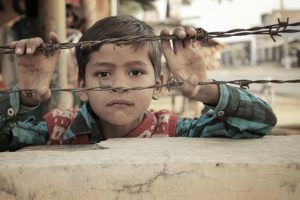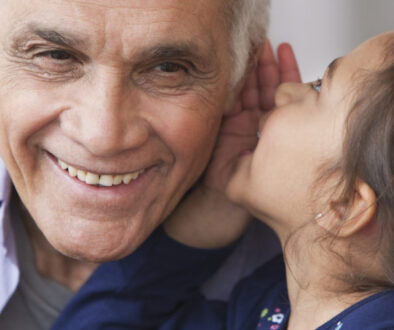Family and childhood trauma and its unseen impacts
Traumatic events that happen early in life can have a severe negative impact in the quality of your life as an adult. Children whose minds are still developing don’t have the appropriate emotional and mental mechanisms to handle childhood trauma, which can seriously interrupt their development – on all levels.
Sometimes you’re aware of the traumas you’ve experienced, but much of the time it has been stored away or buried in the subconscious mind and has been turned into survival mechanisms that are reactive in nature. These protective mechanisms can look like addiction, social isolation, intimacy issues, limiting belief systems, anxiety and depression to name a few.
The details of the trauma may be ‘hidden’ from your conscious mind, but its effects will still be showing up in your life as physical symptoms and stress in your relationships. So if you have unexplained chronic pain or generally feel that your life is stressful and your relationships are unsatisfying, unresolved trauma may be the root cause.
What is trauma?
A trauma is a frightening, dangerous or even violent event that has a shocking impact on a person. Traumas pose a threat to a person’s sense of safety and security and in some cases may also cause permanent psychological or physical damage.
Everyone has a different perception of traumatic events. What might be traumatic for one person may seem trivial to another. There is no objective scale that can measure how traumatic an event is, thus we must respect what others consider to be a traumatic experience. However, age is a highly relevant factor and adverse childhood experiences do leave their mark.
When you think about childhood traumatic experiences, straight away you’re probably thinking of ‘big’ things like: sexual abuse, abusive parents, parents’ divorce, parents with mental health issues such as alcoholism, sibling abuse, death of an immediate family member, or bullying at school.

Other childhood experiences can be equally traumatic, for example: being adopted or fostered, having to raise your siblings at the expense of your childhood, illness of you or a loved one, parents’ bankruptcy, moving home and schools, living overseas, or living in an unsafe neighbourhood.
However, the so-called, harmless, repeated family teasing, sibling rivalry or series of ‘small’ events like parents favouring your brother or sister over you, or rarely giving you any words of praise also have an insidious and long-term effect – the snowball effect.
How does childhood trauma affect a child?
Children can experience different feelings and show different reactions to trauma. These feelings and reactions vary in nature, onset, intensity, frequency, and duration. This is often affected by the type of trauma they’ve experienced.
Children are likely to feel different things without completely understanding their feelings. When they get to a stage where they can rationalise their feelings and come to terms with the childhood trauma, it can have different outcomes. For some, it can be cathartic in that they gradually free themselves from the negative feelings associated with the trauma, but for others the deeper understanding of the traumatic event can lead to experiencing post-traumatic stress. If the emotions are not addressed, stress, anxiety and depression are more common in adulthood.
Importantly, the way our brains make meaning of life is very different in childhood than as adults and we tend to think in absolutes. For example, a child waiting for an extended period of time to be picked up from school might think: ‘My Dad didn’t make time for me… He mustn’t love me… I’m not lovable.’
There are five main wounds in childhood: rejection, abandonment, humiliation, betrayal and injustice.
Those five wounds create limiting beliefs, such as:
- I’m a bad person. • I don’t deserve the best.
- I’m not lovable. • I can’t trust people.
- I’m not worthy. • Life’s not fair.
- I’m not good enough. • I’m a failure.
And these limiting beliefs then negatively impact our perceptions, choices and behaviours and are fundamentally at the root of: disease in the body, unfulfilling careers, and unhealthy relationships.
The stress and grief children experience due to trauma can, over time, lead to:
- Psychological disorders such as post-traumatic stress disorder (PTSD), separation anxiety and depression
- Negative impacts on major aspects of their development
- Difficulty in forming relationships with peers and potential romantic interests
- Difficulty expressing or controlling emotions
Trauma can also affect the child’s mental functioning and thus negatively affect their adjustment at home, at school, or in their social circles. However, it must be noted that some children choose to excel at certain aspects of their life in order to escape having to deal with childhood trauma. For instance, some children and teens focus intensely on schoolwork or a hobby in order to overcome the negative feelings associated with their traumatic experience.
There are numerous studies on the effects of childhood trauma
- One study (https://www.ncbi.nlm.nih.gov/pubmed/16549308) demonstrated that every adverse childhood experience (ACE) increased two to threefold the likelihood of adolescents drinking alcohol by the age of 14 to cope with traumatic and stressful events.
- Another study (https://www.ncbi.nlm.nih.gov/pubmed/20888640) showed that children who were maltreated by an abusive parent or guardian were more likely to turn to unhealthy behaviour such as alcohol use, smoking, and risky sexual behaviour.
- Another study concluded: “Compared to persons with no ACEs, the risk of heavy drinking, self-reported alcoholism, and marrying an alcoholic were increased twofold to fourfold by the presence of multiple ACEs, regardless of parental alcoholism.” (https://www.ncbi.nlm.nih.gov/pubmed/12201379)
How does childhood trauma affect families?
When a traumatic event affects a family, its effect is more varied depending on each family member’s reaction to the traumatic event. Traumatic events can also affect the family members’ relationships with one another.
Sometimes, traumatic events have a positive effect on the family where they become closer as they lean on each other for support. However, this is not always the case.

A traumatic event can oftentimes drain the family of resources and hinder their day-to-day functioning. Traumatic events like major illnesses, natural disasters, disgrace that requires the family to start over, and the death of the breadwinner of the family may cause significant financial strain, making it hard for the family to meet daily needs. When a traumatic event limits a family’s access to their daily needs, it becomes even more difficult to deal with the trauma in a healthy way.
In some cases, family members resort to escapism through the use of alcohol, drugs, extreme lifestyles, or even working too much in order to avoid having to deal with both the traumatic event and its consequent effects on their family.
In terms of relationships within the family, the parent-child relationship can also be greatly affected. Parents may have trouble helping their children cope with the trauma if they’re finding it difficult to handle the traumatic event themselves, especially if they have their own physical and emotional issues. A parent’s poor coping skills may exacerbate the trauma for their children.
Sibling relationships can also be negatively affected by trauma. Siblings provide companionship, comfort, and a familial connection that’s different from those provided by parents. Some siblings may form rivalries due to the extreme changes brought about by the traumatic event. Sometimes, these sibling rivalries may even escalate to more intense conflicts and feelings of rejection, abandonment or betrayal. Again, this could be compounding the trauma.
Need help resolving childhood trauma?
The effects of a traumatic event on a child or the family may not always be obvious. In fact, many of the effects of trauma can show up later when families are expected to go back to ‘normal’ and sometimes not even show-up until adulthood.
If you feel you get stressed or overwhelmed easily, lack emotional resilience, lack self-belief and worth, feel depressed or suffer anxiety and panic attacks, then unresolved adverse childhood experiences may be the root cause.





